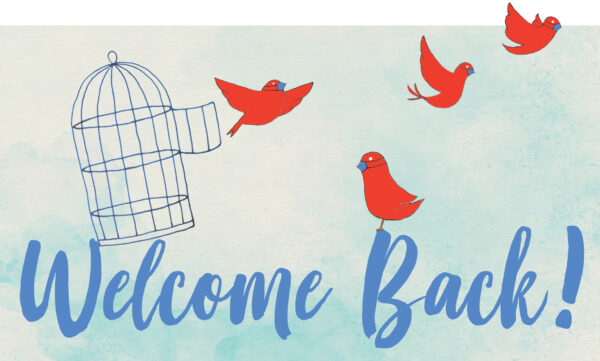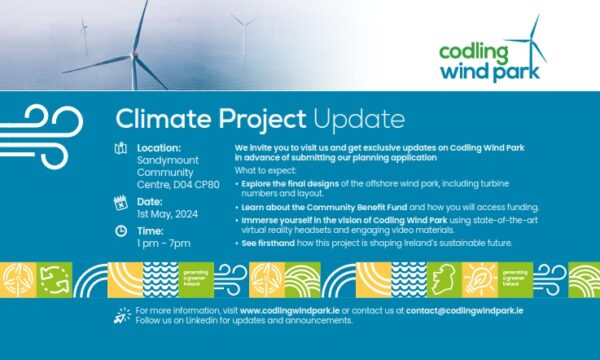
It was the Chinese New Year but in the city of Wuhan there was no evidence of celebrations. This teeming place was a ghost town. No lanterns were lit red, and the dragons, unlucky, in this dismal New Year, did not dance in the streets.
The everyday frenzy of people working and living had been completely stilled, people were afraid of using transport, sharing the same space or the same air, leaving silent roads empty and evacuated buildings and places abandoned.
A virus was infecting people. Fear and unease marked this Year of The Rat, that carrier and eternal emblem of The Black Death, the deadliest, recorded pandemic in history, that peaked in Medieval Europe, scything down millions. An event so traumatic it is embedded in our collective memory where it gnaws at us as a revulsion of rats and a terror of any contagions widespread or not.
This virus was more elusive, both less deadly and obvious but marked by phobia and an authoritarian response to it that heightened the anxiety and horror. What was it? With a dearth of facts, there was a plethora of rumours; it came from pangolins, it came from bats, it came from the wet markets, it was engineered and escaped from a lab, a shady scientific-military Chino-American secret spliced with different disease strains, it was deadly, it wasn’t dangerous at all, it was unknown, it was simply flu. It was airborne and you could catch it through your eyes, it lived for days on surfaces. Yes it did. No it didn’t. Reality and evidence trickled through via news reports and footage.
A young Irish man working as a teacher in Wuhan caught our attention here. Casual, articulate and relaxed, Ben Kavanagh gave his interview to Channel 4 News using a screen video and internet. Technology that everyone would be forced onto within weeks for any communication purposes or human contact. He described how some were “freaking out” but said, “I try not to worry until it’s time to worry.” He filmed himself stockpiling food on a trip to the shop and the bizarre surrealness of this gargantuan city at a standstill, a situation everyone would experience soon.
It quickly became time to worry and, shortly after, international workers including him were evacuated by their governments. There were disturbing images of Chinese people being forcibly carried out of their homes and locked into metal boxes, draconian measures and quarantine were enforced.
Wuhan was the epicentre of what would rapidly infect us all – a flummoxing global disruption and an abrupt and grievous dismantling of our way of life. We watched and listened from our island. China was far away but we knew it was travelling and inevitably contagious. It hit mainland Europe hard, we shared the social media, in horror and empathetic solidarity, of all of Madrid clapping at night on balconies for hospital workers and Italians singing across to one another from prisons that were their homes.
The elderly and the immunosuppressed were more vulnerable and the susceptible and the nursing homes were ravaged by it. The healthcare system after 20 years of ruinous underinvestment and privatisation was distressfully under resourced and ill equipped to cope with it. Despite all of our technology, it was the Medieval methods of quarantine and masks that were the best protection against it and ultimately all we had. All of it would come to us, our lockdown less harsh, though just as unwanted.
The starkness of the situation was difficult for the Irish mindset to grasp. A subtle, slippery resistance resides in us from hard won freedom. The question hovered, ‘Surely it won’t happen here?’ But we already knew the answer. Culturally we are relaxed, casual and articulate. We may even confuse talking with taking action and there was talk, COVID talk everywhere: We breathed our way through daily reports, statistics, analysis and conjecture, we breathed on top of one another, and breathed easy, at our ease, continuing to do all the activities we need and like to do; travel, cultural and artistic events, hardwares, bookies, garden centres, gyms and sports, racetracks and stadiums, allotments, parks, schools, public services, business and industry, restaurants, pubs, cafes, parties; and we touched, hugged, kissed, and gathered, operating in close proximity to one another.
Ordinary, meaningful human life that is so necessary and fulfilling to our nature because it is of our nature. We not only know now how precious and cherished this ‘ordinary’ is but also how alien life is without it. Citizens were advised to return home from other countries, the purposely fashioned National Public Health Emergency Team was assembled, NPHET sounded like some avenging angel, but the procrastination was all too understandably human, ‘Maybe-perhaps we would temporarily close or curtail regular activities, perhaps-maybe.’
There was the added complication of an unformed government, the general election outcome had not been conclusive for anyone and parties were embroiled in messy pacts, squabbling over carve ups, rather than rerunning the election quickly or forming a unity government and focusing on the unprecedented emergency at hand. But then the WHO officially announced COVID as a pandemic. It was lightning striking the tower. The progression was as rapid as it was destructive and as unexpected as it was catastrophic.
Our distracted, casual, articulate country was sieged with strict orders, decrees and an abrupt rescinding and muting of our society as we knew it. It impacted everything. The way we work, interact, travel, play, compete, communicate, plan, relax, our spaces, our incomes, all our services, our routines, our lives. Our outlet of collective catharsis whether for entertainment or protest was driven into irresolution.
Our circles and gatherings were disrupted as well as our children’s needs, normality and expectations, shops were boarded up, curfews announced, special Gardai powers conferred, only businesses deemed essential such as chemists and supermarkets remained open.
The Internet boomed. Everything went online. Soon many items online were sold out. Seeds, flour, or sanitiser were unobtainable. Soon some websites were unobtainable. They hadn’t the stock or couldn’t cope with the orders. Pubs were ordered shut, Children were sent home from school. We learnt a new vocabulary overnight, “Essential workers” “Self isolate” “Social Distance/Distancing” “Zoom/ Zooming” “R-rate” “New Normal” “Surges” “Spikes” “Cocooning.”
Only mad foxes and Garda went out at night and if you ventured out it was like walking on the moon, an alien landscape of streetlamps, silence and nothingness. It was an indefinite pausing of our lives with a confusion about the near and long term future, accompanied by a whole spectrum of emotions in no particular order. There was loneliness, grief and plenty of judgement. For most it was devastating, for others an inconvenience, then there were those relieved by it all to find the world has aligned with them whether that was in trauma or relaxation. It was both a scramble and a humbling.
A strange mixture of bold moves and doing nothing. It’s been a pivotal moment, and is, it turns out, a very bad thing and a very good thing. Suffering is absolutely individual. So is relief. We know what we’ve lost, livelihoods, economy, personal milestones, rites of passage, celebrations and rituals that were cancelled, time lost with love and to love, too many have had to endure the ultimate grief, death of their loved ones, infinitely worsened by being barred from their burials. And more misery certainly awaits us. But possibility never ceases, nor does the human spirit and in the dark we seek the light.
At the start of the outbreak and lockdowns, the artist David Hockney declared, “You can’t cancel Spring.” Beneath the oppressive canopy of virus and fear, the undergrowth of hope has sprouted, and now we welcome a return to a better life with an emphasis on what we value and how we want to live. It is time for the human ingenuity and energy that illuminates the dark and ourselves to shine. During the worst deprivation we found ways to cope. Community bingo from balconies and outdoor discos sprang up, people shopped for others in total quarantine, families had more time together – the stark duality of every situation also became acknowledged and exigent – where abuse and violations soared it forced action on services and highlighted provision in these cases.
The risks and costs that are worth taking for ourselves and each other showed up. The pressure of COVID made untenable injustices insupportable, as the unstoppable Black Lives Matter protests at the height of lockdown proved.
Direct Provision has entered the national consciousness as an unacceptable stain on us, there is a greater sense of equality and connection and what is worth fighting for. Homeschooling emphasises the profound, vital importance of our teachers and affords them the respect and gratitude they deserve. The backbone of our country and needs are met by essential workers and there is a new awareness of the importance of their work and their honour.
A general scrutiny now prompts what we remunerate, alongside a recalibration of our priorities, our system and how we ensure our needs, wellbeing and safety are met. Many now prioritise the necessity of nature, realising what a resource our parks, green spaces and wildways are. Our survival dependent on her health. The temporary absence of cars, their toxic fumes and noise was paradise regained. More people are cycling and walking.
We also discovered how kind we are, how innovative, how community is everything. How expressive of ourselves and to one another we are. The sacrifices of lost mirth and customs recast what is really important. We need to fasten and support our own sovereign resources and food security and supply, as well as micro economy. Work should be fulfilling, purposeful and flexible.
Our lives are supposed to be balanced, productive and healthy. You can’t cancel the human spirit. Throughout it all we found ways to be together and to help one another.
The deprivation charmed back the real luxuries of our lives: The joy of family, friends and colleagues, our values, the purpose and net effect of our work, our ability to insightfully question ourselves and our system. What is really important? A better way of life is in our focus.
Welcome back! To the gift that is our lives, Yes, we’ve to proceed with caution but proceed we will. Our lives and our future are an uncancellable Spring. It renews again and again. We are now presented with this threshold and the opportunity to embrace with new meaning our old lives. Hope is contagious.
We now have the chance to reassert and reset our priorities. To create better lives and live in a better world. The life force of the human soul and the dragons of prosperity and health that represent generation, regeneration, celebration and family reunion will dance again



